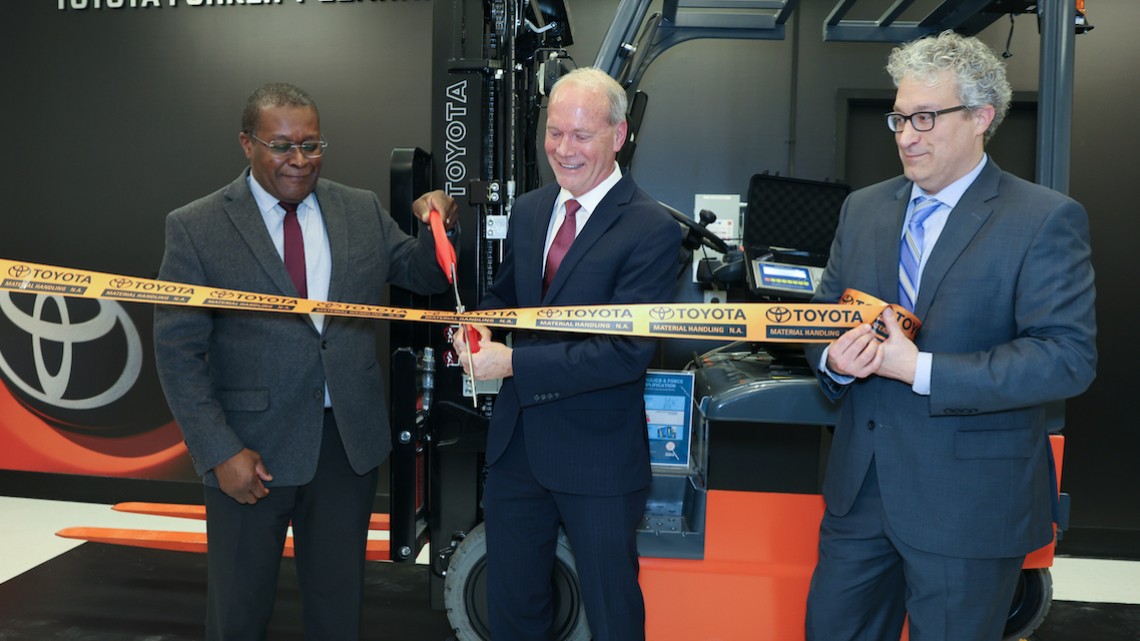
With the snip of a ribbon, a group of business leaders, faculty and students celebrated the opening of the Forklift Learning Studio at Cornell Engineering, March 1.
Located on the first floor of Thurston Hall, the studio launched in April 2022 thanks to a partnership with Toyota Material Handling, which donated three models of forklifts as well as parts. Since that time, students have been using the studio to deconstruct and assemble forklifts and their components as part of mechanical engineering courses such as ENGRD2020 (statics) and MAE3230 (fluid mechanics).
“We wanted to create a place for engineering students to take their theories and practice them in person and on real products,” said Brett Wood ’85, president and CEO of Toyota Material Handling North America, who developed the idea for the studio with Brian Kirby, the Meinig Family Professor in the Sibley School of Mechanical and Aerospace Engineering. “[Brian] reminded me, students are motivated by action – building, testing, tearing apart things.”
In one introductory fluid mechanics unit, exercises inside the studio are aimed at understanding flow distribution. Students use anemometers to measure the flow field of box fans, a large-scale stand-in for a common component in forklifts and many other vehicles. In another course, students observe the aerodynamic forces of a spinning-cylinder Flettner rotor, while others get hands-on with a Venturi vacuum system.
Speaking at the ribbon cutting event, Kirby said making the learning studio operational was a team effort and thanked senior lecturer Matt Ulinski along with teaching support specialists David Hartino, Liran Gazit, and Patrick Wick, who worked with a team of 13 undergraduate and M.Eng. students to build the course units.
One of those students was Emma Sudmann ’25, who spent last summer deconstructing a forklift to better understand how its components work and how they can be incorporated into the curriculum.
“I learned so much, whether it was seeing this big machine get broken down and understanding how its systems work together, or getting it set up on the engine dynamometer,” Sudmann said. “I can’t wait to see all the labs we get to do in my next couple years, and see how this really changes others and my time at Cornell.”
Cornell Engineering’s Sibley School hopes to use the Forklift Learning Studio as a model to establish similar studios in the future, something Wood said he is proud to be part of.
“Being a good corporate citizen also means helping grow our country and helping grow the minds of young people,” Wood said. “So today is the beginning of a very important place for lifelong learning. I can’t wait to see where we can go from here.”



